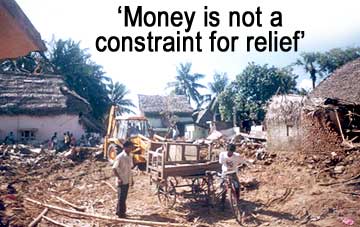
C V Shankar, Officer on Special Duty, relief and rehabilitation, is probably the only IAS officer in Tamil Nadu working on a Saturday. He is responsible for tsunami relief in all of the state, which lost almost 10,000 to the water's wrath.
Shankar spoke to Contributing Special Correspondent A Ganesh Nadar about rebuilding affected lives.
Initially you gave Rs 4,000, 60 kg of rice, 3 litres of kerosene and a clothes packet to all affected families. What will they get now that the larger families are through with that?
We are planning to give them another round of sustenance packages. But we cannot do this for 12 months.
Sooner or later they have to go back to work.
What is the budget you are looking at for complete rehabilitation?
There is no budget as such. The budget will be as the need is. There is no constraint.
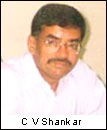 Please clarify about the Rs 5 lakh government aid announced per orphan and the Rs 3 lakh per adolescent girl. Is it only for those living in government homes?
Please clarify about the Rs 5 lakh government aid announced per orphan and the Rs 3 lakh per adolescent girl. Is it only for those living in government homes?
The government will give Rs 5 lakh plus interest to all tsunami orphans when they become 18 years old.
We will also give Rs 3 lakh plus interest to all adolescents when they become 18, or get married, or start a business.
This amount will be given irrespective of where they stay.
What about agricultural land that has become saline because of seawater?
We plan to give an immediate relief of Rs 1,000 per hectare. The final relief amount will be around Rs 7,500 per hectare. We are working on that now.
What is the plan for trauma care?
We have the government and the NGOs working together on this. Trained psychiatrists will coach counsellors. They in turn will train health workers and NGO volunteers. They will go to the villages and work. Doctors will be supervising them.
The last step will be institutional care.
Kanyakumari Collector Sunil Paliwal is clearing private hospital bills with donations from the public. That is not happening in Nagapattinam or Cuddalore.
What is the government's view on that?
The Kanyakumari collector has sent us a suggestion to do this.
We have agreed to do so within government guidelines. Now they (the Kanyakumari collectorate) can pay with government money.
How does a tsunami victim go about it?
First, you have to present the bill. Then a government doctor will certify the bill. They will also tell us how much the same treatment would cost in a government hospital. We will pay that amount.
Main Photograph: Paresh Gandhi/India Abroad. C V Shankar photograph: A Ganesh Nadar
Headline image: Uday Kuckian



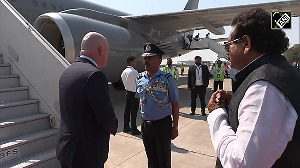
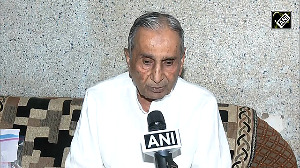
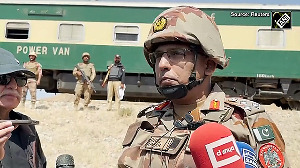
 © 2025
© 2025